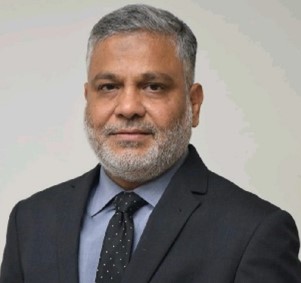By Saleem Ullah, Deputy Governor, State Bank of Pakistan
The rise in digital financial services, fuelled by mobile technologies, represents a major opportunity to advance financial inclusion. But as digital wallets become widespread, how can we ensure consumers are protected from digital frauds?

By making it possible to reach consumers everywhere at very low cost, digital technology has been a real game-changer for financial inclusion in Pakistan. Cooperation between banks and telcos has allowed people to open accounts remotely. As a result, our financial inclusion level has grown exponentially, from 16% in 2015 to 60% today.
While this massive expansion in access to financial services is welcome, it needs to be accompanied by a sharp focus on consumer protection, particularly in the context of low financial literacy in Pakistan.
The rapid growth in digital wallets brings with it the risk of digital fraud. Building our population’s financial literacy, particularly with respect to the risks associated with digital financial services, is therefore a top priority.
We also have regulatory tools at our disposal. To combat digital wallet frauds, we recently introduced a two-hour lag time before a digital transaction can be cashed out. This provides a window of opportunity for consumers to be alerted to fraudulent transactions, and for them to take action to protect themselves.
Availability of centralized and shared fraud detection, prevention and reporting mechanism is also critical. We are therefore working with our regulated entities to develop Machine Learning capacity in their systems. This will allow banks to proactively identify and hold suspicious transactions, and verify them before transferring funds. We have also introduced a new liability framework for banks where customers impacted by digital frauds due to lack of bank controls would be compensated fully.
Digital technology has allowed us to overcome a major infrastructure hurdle: the ability to provide financial services to consumers at low cost. Going forward, the emphasis will be on ensuring that the access to services is safe and robust, putting consumer protection first.

 About
About
 Online
Online
 Data
Data



















